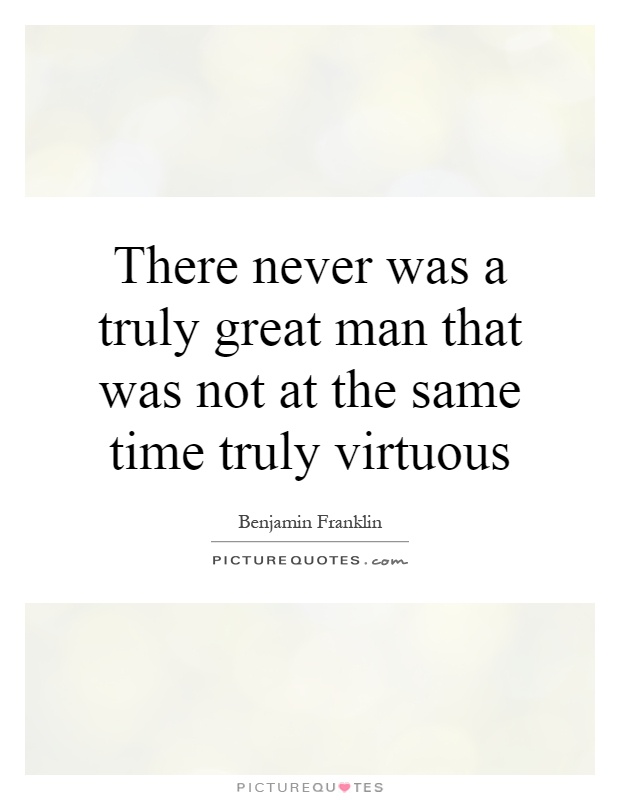There never was a truly great man that was not at the same time truly virtuous

There never was a truly great man that was not at the same time truly virtuous
Benjamin Franklin is often regarded as one of the greatest men in American history, and his life exemplifies the idea that true greatness is inseparable from virtue. Throughout his life, Franklin demonstrated a commitment to moral principles and ethical behavior that set him apart from his contemporaries and contributed to his enduring legacy as a statesman, inventor, and philosopher.From a young age, Franklin was guided by a strong sense of moral duty and a desire to improve himself and the world around him. He believed in the importance of hard work, honesty, and integrity, and he strove to embody these virtues in his own life. Franklin's famous autobiography, which he wrote in his later years, serves as a testament to his commitment to self-improvement and moral excellence. In it, he outlines his thirteen virtues, which include qualities such as temperance, industry, and humility, that he believed were essential for leading a virtuous life.
Franklin's commitment to virtue was evident in his public life as well. As a statesman and diplomat, he worked tirelessly to promote the common good and advance the cause of liberty and justice. He played a key role in the American Revolution, helping to draft the Declaration of Independence and secure crucial support from France. Throughout his diplomatic career, Franklin was known for his honesty, integrity, and commitment to the principles of democracy and freedom.
In addition to his political achievements, Franklin was also a prolific inventor and scientist. His experiments with electricity and his inventions, such as the Franklin stove and the lightning rod, revolutionized the fields of science and technology. Franklin's curiosity, creativity, and ingenuity were driven by a desire to improve the lives of others and make the world a better place.












 Friendship Quotes
Friendship Quotes Love Quotes
Love Quotes Life Quotes
Life Quotes Funny Quotes
Funny Quotes Motivational Quotes
Motivational Quotes Inspirational Quotes
Inspirational Quotes